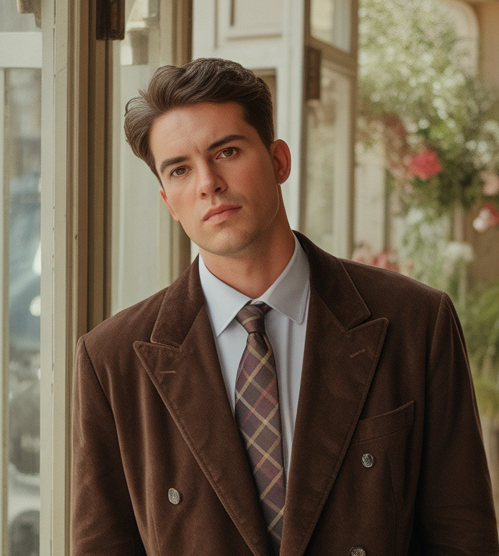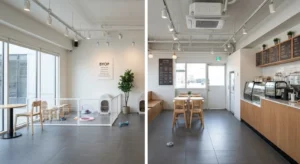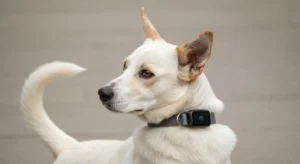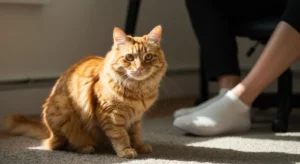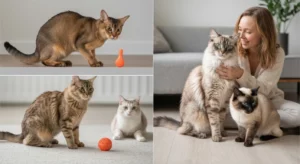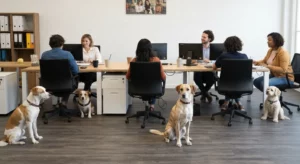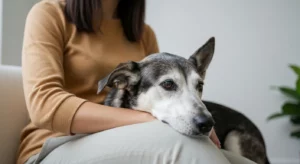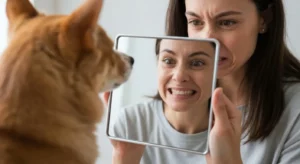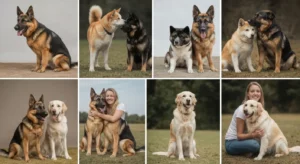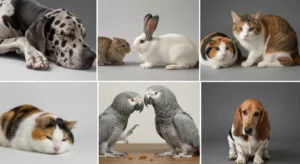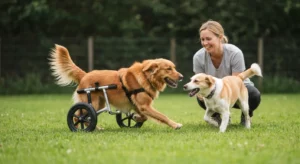The Sound of an Empty Apartment
The silence was the first thing I noticed when I moved into my new apartment. It wasn’t a peaceful quiet; it was a hollow, echoing silence that amplified my own solitude. I had just moved to a new city for a job, leaving behind the familiar network of friends and family. My life was packed into cardboard boxes, and my world felt just as contained, just as temporary. Each evening, I’d come home from work, heat up a meal for one, and the only sound would be the hum of the refrigerator and the distant city traffic.
I’d always been a “dog person.” Growing up, our home was a chaotic symphony of wagging tails and muddy paws. We always got our dogs as puppies—wriggling, clumsy balls of fluff that we’d raise from scratch. The thought of getting a dog now crossed my mind daily, a desperate wish for companionship. But the idea of a puppy felt impossibly daunting. The sleepless nights, the potty training, the boundless energy—it felt like a responsibility I couldn’t shoulder alone in this new, fragile chapter of my life. A puppy, I reasoned, needed a bustling family and a yard, not a quiet twenty-something in a second-floor apartment.
So, I resigned myself to the quiet. But loneliness is a persistent ache. It led me to late-night scrolling on local shelter websites, a habit I told myself was just window shopping. I’d coo over the photos of impossibly cute puppies, their listings full of hope and promise. Seeing them only cemented my belief that I wasn’t ready. I was looking for a companion, not a project.
A Face on a Screen
Then I saw him. His picture wasn’t at the top of the page. It was buried several clicks deep, under the “Seniors” filter I’d clicked on a whim. The photo was poorly lit, taken through the chain-link of his kennel. He was a mutt of indeterminate origin—part shepherd, maybe some kind of hound, with big, floppy ears and a distinguished coat of black and tan, frosted with gray around his muzzle and eyes. He was lying down, his head on his paws, and he looked less sad than he did… resigned.
His name was Gus. His bio was short, almost clinical. “Gus, approximately 9 years old. Surrendered by owner due to a change in living situation. Knows ‘sit’ and is house-trained. A quiet, low-energy companion.”
There was no cute backstory, no list of adorable antics. Just the bare, stark facts of a life interrupted. A quiet companion. The words hung in the air of my silent apartment. While the puppies seemed to scream with need and potential, Gus’s profile was a quiet whisper. For days, I couldn’t get his face out of my head. It was the look in his eyes—a deep, weary wisdom that you only see in a creature that has seen a bit of life. I closed the laptop, but the decision had already taken root. I had to meet him.
The Quietest Dog in the Shelter
The shelter was an assault on the senses. The air was thick with the smell of disinfectant and animal fur. The barking was a cacophony of pleas and anxieties, echoing off the concrete walls. As a volunteer led me down the main corridor, dozens of dogs jumped and barked, pressing their noses through the bars of their kennels, desperate for a moment of attention.
Gus’s kennel was at the very end of a quieter hall, reserved for older or more sensitive animals. He was lying on a worn blue blanket, in the exact same position as his profile picture. He didn’t get up as I approached. He simply lifted his head, his brown eyes tracking my movement. He watched me with a calm, unnerving stillness. There was no barking, no whining, no tail-thumping against the concrete. He just watched.
“He’s a sweet old man,” the volunteer said softly. “He’s been here a couple of months. People tend to walk right past him. The process of older dog adoption can be slow; everyone wants a puppy.”
We took him to a small, fenced-in “get to know you” yard. He walked out on the leash with the polite dignity of a seasoned gentleman, never pulling. Once inside the yard, he did a slow, methodical sniff of the perimeter. He let me stroke his back, his fur coarse but thick. He acknowledged my touch with a slight lean into my hand before continuing his quiet investigation. He didn’t jump on me. He didn’t lick my face. He didn’t fetch the faded tennis ball I tossed half-heartedly in his direction. He was simply present, a calm and solid entity in a world of chaos.
I sat down on the dusty ground, and after a moment, he came over and sat a few feet away from me, facing the same direction. We just sat there together, two quiet souls watching the world go by. In that moment, I didn’t feel the need to perform or to entertain. It was the most comfortable I had felt in months. This wasn’t about me “saving” him. It felt like we understood something in each other. I was choosing a partner who didn’t need me to build him from the ground up, but who might let me in to the home he’d already built within himself.
“I’ll take him,” I said, the words feeling more right than anything I’d said in a long time.
A Ghost in My Home
The first week was harder than I expected, but not in the way I’d feared. Gus was no trouble at all. In fact, he was barely there. He found a spot on the rug in the corner of my living room, and that became his island. He’d sleep there for hours on end, a heavy, sighing presence. He ate his food, he went outside to do his business with stoic efficiency, and then he would return to his spot.
The silence in my apartment returned, but now it was different. It was a heavy, watchful silence. I’d bought him a soft new bed, a collection of toys, special treats. They all sat untouched. I started to panic. Had I made a terrible mistake? Was he depressed? Was this quietness not a sign of a calm temperament, but of a broken spirit? Was he just waiting for the family that had left him to come back?
I would talk to him constantly, my voice filling the space with cheerful, one-sided conversations. I’d tell him about my day at work, read chapters of my book out loud, narrate the show I was watching on TV. He would watch me, his head cocked, his ears twitching at the sound of my voice, but he remained on his island. He was a ghost in my home, a constant, heartbreaking reminder of the life he had lost.
The Weight of a Head on a Knee
The change wasn’t a sudden breakthrough. It was a slow, glacial shift. It started with our walks. We developed a routine: a short walk in the morning, and a long, meandering one in the evening after work. He loved our evening walks. His pace would quicken slightly, his nose constantly working, reading the story of the neighborhood left by other dogs. He started to trust me to lead, staying close by my side instead of lagging behind.
Then, about three weeks in, the turning point came. It was a Tuesday night. I was slumped on the couch, feeling a familiar wave of homesickness and loneliness wash over me. The TV was on, but I wasn’t watching. I was just staring into space, lost in my thoughts. I barely registered the soft click-clack of nails on the hardwood floor.
Suddenly, I felt a gentle but firm pressure on my leg. I looked down. Gus was standing beside the couch, his big, soulful eyes looking directly into mine. And then, he did something he had never done before. He rested his heavy, gray-muzzled head on my knee. It was a simple gesture, but it was monumental. It was an offering. A connection. A bridge from his island to mine.
I felt tears well up in my eyes and spill down my cheeks. I gently placed my hand on his head, stroking his soft ears. He didn’t pull away. He leaned in, letting out a deep, contented sigh that seemed to vibrate through my entire body. In that moment, the weight of his head on my knee anchored me in a way I hadn’t felt in years. I wasn’t just a person in a room, and he wasn’t just a dog on a rug. We were together. We were home.
Learning the Language of Gus
From that day forward, the real Gus began to emerge. It was like watching a flower bloom in slow motion. His personality wasn’t loud or flashy; it was a collection of subtle, endearing quirks. I learned that he made a soft “wookie” sound when he was happy to see me in the morning. I discovered his deep, abiding love for car rides, where he would sit regally in the passenger seat, his nose pressed to the crack in the window, taking in the world with quiet joy.
He wasn’t playful in a traditional sense. He had no interest in fetch. But he loved a game we invented called “find the treat,” where I would hide a small piece of cheese and he would use his magnificent hound nose to track it down with intense focus. He never chewed on furniture or had an accident in the house. He came pre-loaded with a lifetime of manners. Adopting an older dog meant I had skipped the difficult puppy phase and fast-forwarded to the best part: the quiet, comfortable companionship.
He was my shadow, following me from room to room, not out of anxiety, but out of a simple desire to be near. His presence was a calming balm on my life. His steady rhythm—the morning walk, the afternoon nap in a sunbeam, the evening cuddle on the couch—gave my own life a structure and a purpose it had been sorely lacking.
A Home, Not Just a House
It’s been four years since Gus came into my life. My apartment is no longer silent. It’s filled with the comforting sounds of his gentle snoring, the jingle of his collar when he gets up for a drink of water, and the happy thumps of his tail against the couch. He is my greeter at the door, my co-pilot on road trips, my furry confidant.
People sometimes look at his gray muzzle and ask me, with a hint of pity, how old he is. They do the sad math in their heads, knowing our time together is inherently shorter than it would be with a puppy. But they miss the point entirely. Adopting an older dog wasn’t a compromise; it was a gift. I didn’t have to guess who he would become; I got to love him for exactly who he already was. He taught me that love isn’t about the length of time you have, but about the depth of the connection you build within that time.
He didn’t need me to save him. He was a whole, complete being who had simply lost his place in the world. All he needed was a new place to belong. In giving him that, he gave me the same thing in return. He filled the hollow spaces in my life with his quiet, unwavering, unconditional love. He is not a project I took on. He is my friend. My family. And choosing him, that quiet, overlooked dog in the back of the shelter, was, without a single doubt, the best choice I have ever made.


